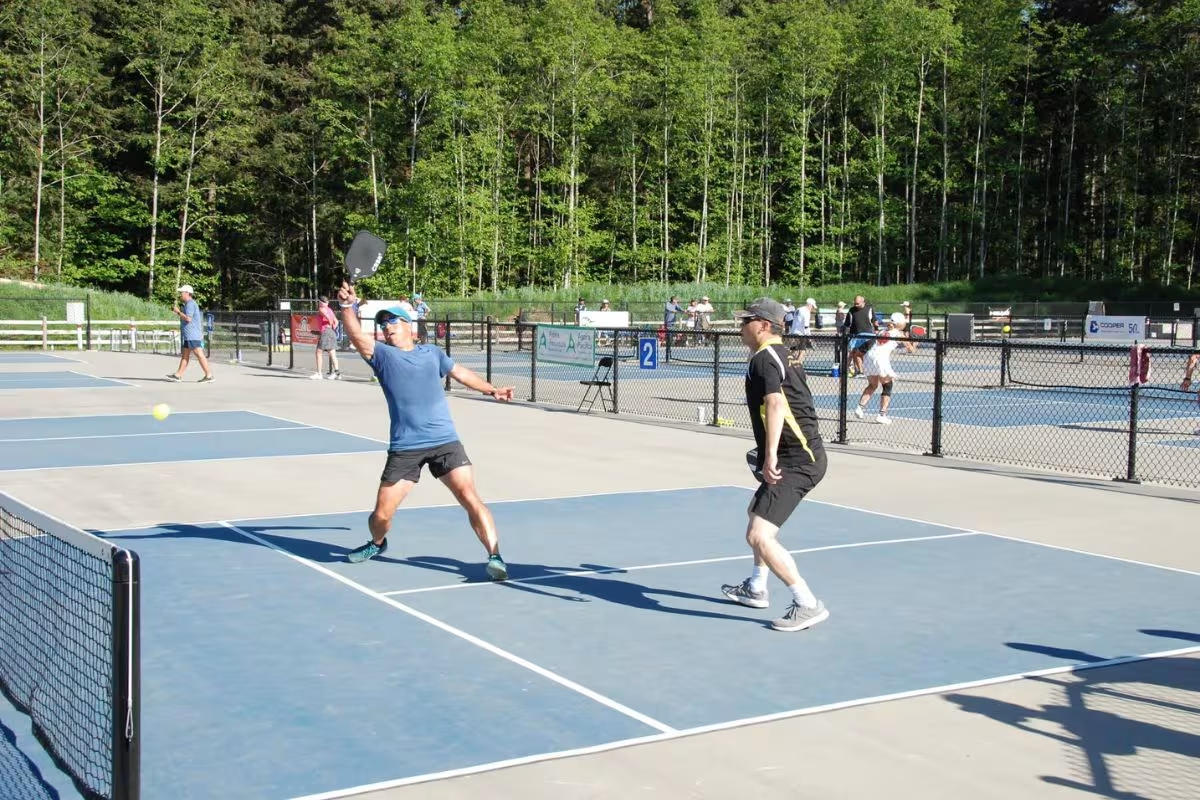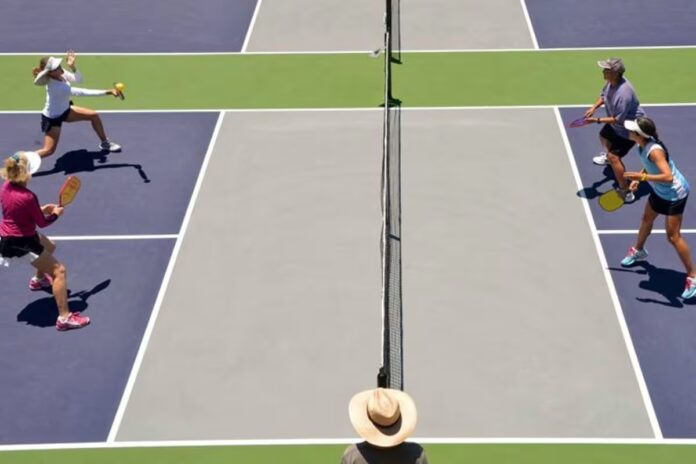Dan Ewing’s Secrets to Staying Sharp in Pickleball: Players know the feeling. They step onto the pickleball court, and Chatty Cathy’s paddle slides next to theirs. There’s a moment of hesitation, wondering if they should move their paddle to the back of the line just to avoid her. Why? Because she simply won’t stop talking, and it’s starting to annoy everyone around.
But what’s the best way to deal with a talkative opponent during a match? How can players handle Chatty Cathy without causing tension on the court?
Opinions on Distractions in the Game
Lynn Wysocky recently posed this very question on the Pickleball Facebook Forum, and, unsurprisingly, the responses were split. Some players, like Dan Ewing, feel that if chatter from an opponent is enough to cause distraction, it shows a lack of mental toughness. He even compared it to standing in a batter’s box or at a free-throw line with hundreds of people shouting from the stands.
“Some of y’all have never stood in a batter’s box or at a free throw line and had hundreds of people scream at you, and it shows. If a little talking by the opponent is enough to distract you, some practice on mental focusing might be in order.” – (Dan Ewing)
While mental toughness is crucial for professional athletes, many wonder if the recreational level of pickleball really needs to be taken so seriously.
View this post on Instagram
Distinguishing Communication from Distraction
Others, like Bob Danielson, argue that communication is part of the game and should be expected. Players need to talk to their partners, call out plays, and communicate during the match. However, he acknowledges the difference between necessary communication and unnecessary chatter.
“If they yell at you to ‘MISS IT!’ then it’s a distraction, but if they’re talking to each other, it’s just player communication.” – (Bob Danielson)
There’s a distinction between shouting “Yours!” as part of team strategy and discussing last night’s television shows mid-match. Liza Orton Arge chimed in, noting that she’s not a fan of players who narrate the game or complain about their own mistakes while playing.
“I’m not a fan of irrelevant talking while playing. Not communicating, that’s fair. I’m talking about people who narrate the play or complain about their own playing. Save it until after the play.” – (Liza Orton Arge)
View this post on Instagram
Respectfully Addressing the Issue
Pickleball courts are known for their noise—players yelling, spectators cheering, and plenty of on-court chatter. Some players, like Naveed Ishfaq, suggest that if the talking becomes an issue, addressing it politely is the best approach.
“In casual games, politely asking them to tone it down is usually the best first step. If they continue or it’s a competitive match, you may want to address the issue with an official or umpire who can enforce any rules around sportsmanship and distraction.” – (Naveed Ishfaq)
Approaching the situation with kindness and respect can go a long way. Instead of calling out Chatty Cathy in a harsh tone, players can say something along the lines of.
“Hey, Cathy. Do you mind keeping the chatter to a minimum during the game? I find it a bit distracting.” – (Naveed Ishfaq)
Pickleball players are known for their friendliness and respect on the pickleball court, so it’s likely Chatty Cathy will respond in kind.

How It’s Handled at the Professional Level
In professional pickleball, referees are quick to issue warnings if player communication crosses the line into unsportsmanlike conduct. But at the recreational level, anything can happen. Whether it’s loud music, constant coaching, or a player who won’t stop talking, the 20×44 space is filled with noise.
The key for recreational players is finding a balance between enjoying the game and avoiding distractions that take the fun out of it.
News in Brief: Dan Ewing’s Secrets to Staying Sharp in Pickleball
Handling a talkative opponent on the pickleball court requires a mix of patience and respectful communication. While some players like Dan Ewing emphasize the need for mental toughness, others such as Liza Orton Arge feel that irrelevant chatter can be distracting. The best approach is to politely ask the talkative player to tone it down, especially in casual games.
At the professional level, referees enforce rules regarding distractions, but at the recreational level, players can typically resolve the issue themselves with a simple conversation. Balancing communication and avoiding excessive chatter is key to maintaining an enjoyable game for everyone involved.
ALSO READ: Master Offensive Lob in Pickleball with James Ignatowich’s Expert Techniques

